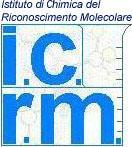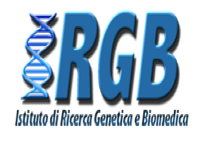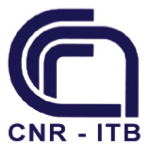 |
THE PROJECT |  |
Context. Aging is characterized by a progressive functional impairment of tissues and organs with different pathological consequences. In particular, inflammatory and metabolic abnormalities are at the basis of several typical diseases of the elderly, such as neurodegenerative diseases and Type 2 Diabetes (T2D), with high co-morbidity. Among risk factors for neuronal and cognitive impairment, various types of stress inducing cellular senescence and metabolic disorders such as obesity and diabetes must be considered. These conditions are of particular public health relevance given the Italian context of overweight (40.7%), obesity (15.4%) and diabetes (9.5%). They share insulin resistance (IR) as common mechanism and are potentially modifiable by lifestyle interventions. IR impairs glucose metabolism and affects different organs, including the brain where the neuronal function is altered. Mitochondrial dysfunction, oxidative and endoplasmic reticulum stress, DNA damage have been observed at the cellular level following IR. These events induce a pro-inflammatory condition and cellular senescence (SC). The ability to modify IR with lifestyle interventions (nutrition, physical activity, sleep) to prevent cognitive decline in the elderly pinpoints the importance of integrating basic research on cellular and preclinical models with clinical studies on subjects with IR. These studies aim at clarifying the pathogenic mechanisms and identifying early biomarkers and innovative therapies for IR.
Objectives. The project aims to study the cellular and molecular mechanisms of neurodegeneration associated with metabolic disorders, a highly prevalent condition in the elderly, which can be modified through preventive interventions focused on lifestyle. We will try to identify new biomarkers and determine whether drugs affecting the molecular mechanisms of senescence may have a protective effect on the onset of neurodegeneration. The project will be developed along two lines of analysis: cell / preclinical models and clinical setting. In a cross?sectional investigation of a high?risk group of patients, selected for age and for the presence of different degrees of metabolic dysfunction, we will evaluate: the presence and severity of IR, functional markers (cognitive deficits, sleep disorders, olfactory dysfunction, dysautonomia), biochemical markers of inflammation and oxidative stress and biohumoral proteomic profiles. In order to identify prognostic markers of disease, the analysis of circulating biomarkers will be correlated with the severity of the metabolic condition and the presence of cognitive/neurodegenerative decay. In parallel, the basic research part of the project will use a well-described animal model of IR and T2D: the mouse C57BL/6 fed with high fat diet (High Fat Diet). In this model circulating biomarkers also analyzed in humans will be measured. Moreover, the relationship between circulating biomarkers and the cellular and molecular mechanisms predisposing to cognitive impairment/neurodegeneration will be analyzed. This will be done non-invasively by means of imaging (PET / MRI / Optical Imaging approaches – OI / Maldi Imaging) in order to evaluate the metabolic (PET), structural (MRI), functional (IO) and molecular (Maldi) status of mice brains with IR compared to control mice fed with normal diet. The effect of IR and T2D on synaptic function, vascularity and myelination in the brain will also be evaluated. Senescence, DNA damage, mitochondrial function, oxidative and endoplasmic reticulum stress will be the cellular mechanisms investigated. Finally, the technological component of the consortium will develop innovative, miniaturized and highly automated methods for the study of biomarkers in order to facilitate their validation and use in the clinical setting.
Impact and Dissemination. By aiming at early detection and prevention of physical and mental deterioration, the project addresses societal challenges formulated also by the European Community concerning the welfare of the older population. Neurodegeneration induced by IR and metabolic disorders affects a very large component of the population and determines a relevant burden in terms of suffering both for patients and their families and in economic terms for the health system. Particular attention will be paid to the dissemination and communication of the results not only toward the scientific community but also toward patients, their associations, primary and specialized health care professionals and the general public. Activities and results will also be communicated to the Lombard Cluster of Life Sciences with the aim of creating synergies with the business partners located in Lombardy interested in technology transfer of discoveries. The development of a diagnostic kit for biomarkers is one of the expected outcomes of the project.
 |
 |
 |
 |
 |
 |
